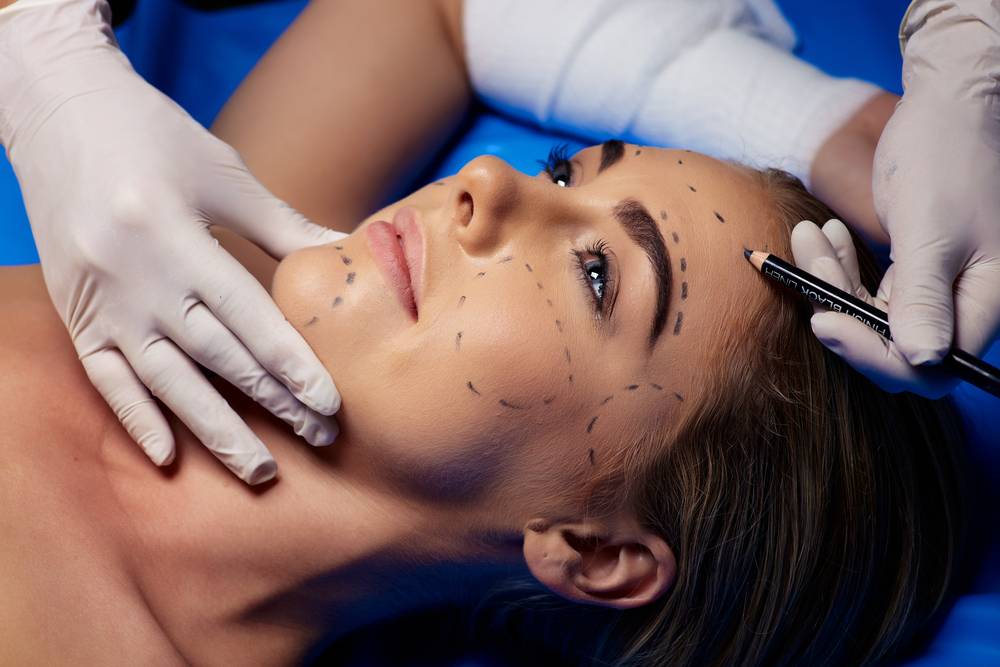
I was in middle school (few decades ago) at the time and a very competitive soccer as well as tennis player. I was keen on playing either sport at a Division I university, but my father pointed out the extensive need to train in the off-season. I was excited to have the home gym, but then wondered what my father was trying to tell my brother and I: you both need to work out more or you both are weak? What seemed like bonding while pumping iron with my old man led to me to worry that I was not able to perform as many pull-ups as him despite wiping him off the tennis court as a pre-teen. Was this analogous to the “Stepford Husband” who buys his wife a new toaster and vacuum for Christmas? What was he trying to say?
Fast-forward many years. I sit in the consultation room of Luxurgery on Fifth Avenue in New York City. I am having a thoughtful discussion with my patient about her desire to undergo a facelift. She mentions to me she wants a natural look and does not want to look “like I just got out of a wind tunnel.” I chuckle with her and her husband who is there for support. An interesting shift occurs in the conversation. “What about you, honey? Anything you want to show the doctor?” she says to her quietly observant husband. “I didn’t know there was anything wrong with me. Should I be showing him something?” he asks puzzled. Their exchange culminated in him changing into a gown and showing me his “belly and love handles.” When I speak to him in private, he mumbles that he’s “put on a few over the years” (meaning pounds), but nothing that bothered him that much. He says to me, “I didn’t know she noticed or cared that much about this on me” as he pinched his belly fat.
When does the gift of giving cosmetic surgery or encouraging someone to undergo a procedure overstep the bounds of friendship or one’s relationship? This couple has been married for as long as I have been alive. They seemingly have been through every experience imaginable together. Yet, the husband was completely thrown off by his wife’s suggestion of him having liposuction. When the couple returned to the office for their respective second consultations and to finalize their plans, I enjoyed witnessing their exchange. Clearly, both had spent significant time discussing the concept of encouraging one another to undergo procedures, but they laughed at how they danced around the topic. Both individuals not wanting to offend the other. The wife told me that when her husband had adorned her recently with a new Hermes Birkin, she was “ecstatic” and did not think twice about what that said about her style or previous bags. She said he insisted she actually wear it out and enjoy it rather than keep it stowed away due to the difficulty in obtaining one at auction. He said when his wife suggested he wear Zegna suits, he just assumed she wanted him to look more refined, but did not take offense to it. When they have encouraged one another to work out, it was to improve their health. She said had her husband suggested she get a facelift…there would have been war.
No one can dispute that suggesting someone buy a new outfit or alter one’s makeup is anywhere near the same level as telling someone to get cosmetic surgery. However, I encounter people on a daily basis when socializing or in the office that nudge their friend and/or significant other to “tell him about that” (share with me their concerns or not concerns but friend’s concerns, rather). So, how does one encourage someone to seek out plastic surgery without insulting them? This is a very complex question that was recently posed to me by my anesthesiologist/dear friend over dinner a few weeks back. The answer, however, is quite simple…you don’t. Let’s discuss cosmetic surgery etiquette.
Recommending to someone to alter his or her appearance, which is difficult to undo, is not something to take lightly. If you understand your friend or spouse, you know what bothers him or her, if anything at all. Directing the individual to someone who can help is naturally acceptable and warranted, if the person of interest actually wants information about the option to address the issue at hand. Joining them at the consultation, if they want your support, is also acceptable. Speaking on their behalf – red flag. Often what we see on others are things they have never seen on themselves. When recently examining a woman requesting a breast augmentation, I asked her if when she looks in the mirror, does she note one breast to be bigger or smaller than the other. What was incredibly obvious to myself and my surgical PA had never been apparent to this 29-year-old woman. “In planning for your procedure,” I told her “you seem to have almost a ½ cup size difference between the right and left breast. We can adjust for this by using a slightly larger implant on the right side.” She stared and then gasped, “I never noticed that before! I just thought my bras never fit right.” The mind has an incredible capacity to calibrate or recalibrate the body’s perception of itself. What seems like something that would bother us may not have ever even crossed someone’s mind. Alternatively, what bothers someone else may seem trivial to us. The point is, this holiday season when you consider giving the gift of cosmetic surgery, do as the plastic surgeon does, “measure twice and cut once… if needed at all.”
For more information, visit Sachin Shridharani, MD, FACS's social media:
























